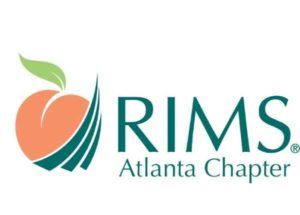
Med Center’s Bad Faith Claim Against Insurer Can Proceed
By Shane Dilworth
Law360 (October 13, 2021, 8:28 PM EDT) — An eye surgery center sufficiently argued that a CNA Financial Corp. unit acted in bad faith in refusing to cover losses caused by the COVID-19 pandemic, a New Mexico federal judge said, but she found the policyholder’s other allegations need refining.
U.S. District Judge Kea W. Riggs ruled that the bad faith claim brought by Albuquerque Ambulatory Eye Surgery Center, or AAESC, could proceed even though it is unclear if its alleged losses are covered under a policy issued by CNA unit Transportation Insurance Co.
The eye center said the insurer acted in bad faith when denying its claim for losses without visiting the property or viewing publicly available information. The CNA unit also refused AAESC’s request for reconsideration before taking the time to review additional documents it requested, the policyholder claimed.
Kristin Davis of Thompson Hammerman Davis LLP, who represents AAESC, told Law360 it was important that Judge Riggs denied CNA’s attempt for an early win on the bad faith claim.
Davis also pointed out that a New Mexico state court judge has yet to rule on a motion to dismiss in a COVID-19 coverage dispute.
Judge Riggs’ decision is one of only three federal court rulings that partially granted an insurer’s bid to toss a COVID-19 coverage suit, but allowed the policyholder to amend the action, according to the University of Pennsylvania’s COVID Coverage Litigation Tracker.
The ambulatory health care services industry is the second highest in bringing lawsuits over coverage denials for losses caused by the COVID-19 pandemic, according to the site. First is the food and beverage industry.
AAESC’s action is also one of 703 coverage disputes that involve a claim for bad faith, according to the site.
New Mexico’s governor issued a public health emergency on March 11, 2020, shortly after the first case of COVID-19 was discovered in the state. Less than a week later, the American Academy of Ophthalmology advised all ophthalmologists to provide only emergency treatment.
Although AAESC was considered an essential business under government stay-at-home orders, the eye surgery center remained open only to perform emergency services. AAESC said the orders forced it to lay off 23 employees and reduce the remaining workers’ hours.
AAESC submitted a claim to CNA seeking coverage under its all-risks policy for business losses resulting from the limited use of its office. The insurer denied the claim in May 2020 and denied AAESC’s request to reconsider the decision that July.
The eye center lodged its coverage dispute in New Mexico state court in February, accusing CNA of breach of contract, bad faith and violating the state’s unfair practices act and insurance practices act. AAESC also requested an order saying the insurer was required to cover the claim.
According to AAESC, its policy’s civil authority provision as well as its business income and extra expense endorsements provide coverage for its losses.
The Illinois-based insurer removed the action to federal court in March, noting that the parties reside in different states and that the requested damages exceed $75,000.
CNA then asked Judge Riggs to dismiss the suit, contending that AAESC’s losses were not covered because they were not the result of direct physical loss or damage
to its property. The insurer also contended the policyholder did not sufficiently allege that CNA violated New Mexico law when denying the claim.
The question of whether a business’ pandemic-related losses were caused by physical loss or damage to a property is central to determining if a claim was properly denied. A majority of courts have sided with insurers and ruled that government stay-at-home orders did not result in covered losses.
Even though no New Mexico court has addressed the definition of direct physical loss, Judge Riggs agreed with the majority of courts and rejected AAESC’s argument that the loss of use of its property was sufficient to trigger coverage. The judge also ruled that the alleged presence of the coronavirus at AAESC’s property was not enough to show physical loss or damage.
Under the broadest interpretation of the phrase, the court finds that where plaintiff alleges that the coronavirus disease caused ‘direct physical loss’ to its premises under the terms of the policy, plaintiff must plead that the premises were infiltrated, saturated, or so overwhelmed by a chemical or biological agent (in this case, COVID-19) as to render it uninhabitable and make use of the building dangerous,
Judge Riggs explained.
AAESC did not sufficiently allege that CNA violated New Mexico law when denying its claim, the judge found.
CNA declined to comment Wednesday. Counsel for CNA did not respond to a request for comment Wednesday.
AAESC is represented by Kristin C. Davis of Thompson Hammerman Davis LLP, and Robert E. Hanson of Peifer Hanson Mullins & Baker PA.
Transportation is represented by Joshua Grabel and David H. Timmins of Husch Blackwell LLP.
The case is Albuquerque Ambulatory Eye Surgery Center LLC v. Transportation Insurance Co., case number 1:21-cv-00280, in the U.S. District Court for the District of New Mexico.



